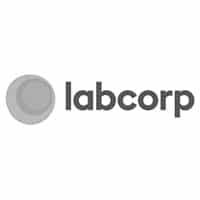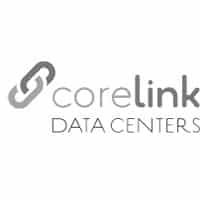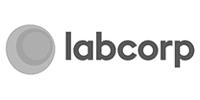Blockchain and the Data Center Industry
 Blockchain is poised to revolutionize the technology industry as we know it, as well as many other industries that utilize technology in one form or another. The market is growing at an incredible pace because blockchain holds the potential to streamline and massively improve processes for a wide variety of industries including banking, real estate, healthcare, politics, critical infrastructure security, legal, security, government, education, and so much more! But, like any new technology, there are positives and negatives. There are also major proponents and detractors. As often happen when new technology emerges, kinks must be worked out. Just last year hackers were able to access blockchain and steal nearly $1 billion dollars across multiple channels. Interestingly, most of the theft and hacking was not due to an error with blockchain but, rather, human error. Because blockchain is so secure and offers so many benefits, it is no wonder it is growing so rapidly and will be something data centers must not only acknowledge but adapt to accommodate and leverage.
Blockchain is poised to revolutionize the technology industry as we know it, as well as many other industries that utilize technology in one form or another. The market is growing at an incredible pace because blockchain holds the potential to streamline and massively improve processes for a wide variety of industries including banking, real estate, healthcare, politics, critical infrastructure security, legal, security, government, education, and so much more! But, like any new technology, there are positives and negatives. There are also major proponents and detractors. As often happen when new technology emerges, kinks must be worked out. Just last year hackers were able to access blockchain and steal nearly $1 billion dollars across multiple channels. Interestingly, most of the theft and hacking was not due to an error with blockchain but, rather, human error. Because blockchain is so secure and offers so many benefits, it is no wonder it is growing so rapidly and will be something data centers must not only acknowledge but adapt to accommodate and leverage.
What is Blockchain?
To begin the conversation it is important to understand what blockchain is and just why it’s many benefits offer such versatility. Blockchain is a decentralized database, distributed public ledger. While blockchains are public, companies or organizations can implement private blockchain networks for distributing information in real time. Any time information, goods, services, or other data is shared it is a ‘transaction.’ So, when we refer to transactions we are not simply referring to financial transactions, thought blockchain will revolutionize the banking and lending industries. Once agreed upon and completed, blocks cannot be altered or deleted which optimizes both accuracy and security. Because blockchain is almost impossible to hack, many industries will be looking at blockchain to prevent security issues.
How Does Blockchain Work?
 Blockchain’s name hints at exactly how it works – transactions are recorded in chains of block. Every time a block is added (with consensus), it connects to the chain of blocks. CIO provides further insight on how blockchain works, “When a new transaction or an edit to an existing transaction comes in to a blockchain, generally a majority of the nodes within a blockchain implementation must execute algorithms to evaluate and verify the history of the individual blockchain block that is proposed. If a majority of the nodes come to a consensus that the history and signature is valid, the new block of transactions is accepted into the ledger and a new block is added to the chain of transactions. If a majority does not concede to the addition or modification of the ledger entry, it is denied and not added to the chain. This distributed consensus model is what allows blockchain to run as a distributed ledger without the need for some central, unifying authority saying what transactions are valid and (perhaps more importantly) which ones are not.”
Blockchain’s name hints at exactly how it works – transactions are recorded in chains of block. Every time a block is added (with consensus), it connects to the chain of blocks. CIO provides further insight on how blockchain works, “When a new transaction or an edit to an existing transaction comes in to a blockchain, generally a majority of the nodes within a blockchain implementation must execute algorithms to evaluate and verify the history of the individual blockchain block that is proposed. If a majority of the nodes come to a consensus that the history and signature is valid, the new block of transactions is accepted into the ledger and a new block is added to the chain of transactions. If a majority does not concede to the addition or modification of the ledger entry, it is denied and not added to the chain. This distributed consensus model is what allows blockchain to run as a distributed ledger without the need for some central, unifying authority saying what transactions are valid and (perhaps more importantly) which ones are not.”
How Will Blockchain Impact Data Centers?
By changing the way data is structured, stored, and transacted, it impacts data center operations significantly. Most of the ways in which blockchain will impact the data center are positive, but it certainly gives IT managers and CIOs pause for concern about how else it might impact things.
Blockchain’s impact on data center power management
One of the largest ways blockchain will impact data centers is power management. Because there is so much data in each block added to a chain, blockchain demands increased storage and computing power. Not only will additional servers be needed to house the storage necessary – demanding more power, but a data center will need to power additional cooling as a result.
While Bitcoin and other forms of cryptocurrency are not the only ways in which blockchain will be used, they are one major way and also the perfect example of the computational power demand that will be placed on data center infrastructure. Cryptocurrency is not minted like other forms of currency, it is “mined” by solving what is essentially a complex mathematical puzzle. This process of solving the puzzle, called a ‘nonce’, can be quite time-consuming and difficult, involving a great deal of trial and error. Each individual nonce is connected to a block which contains information about a group of transactions. Once a nonce has been solved, and those involved in the blockchain network have verified by a majority, the block is then authenticated and added to the chain. The chain serves as a virtual ledger. Needless to say, the entirety of the process demands a high level of computing power from a data center. While this is an example of just one way in which blockchain will put a demand on data centers, it is easy to see how this will be an issue across all industries.
Blockchain’s impact on data center security
 When people hear that blockchain is ‘distributed’, ‘decentralized’ and ‘open source’ it starts to conjure images of hackers having a free-for-all with sensitive, private data. Fortunately, that is not the case with blockchain at all. Blockchain is incredibly safe because it is virtually impossible to hack or alter. The way blockchain is able to maintain security across a decentralized, distributed ledger is that the blockchain network essentially breaks up a file into various pieces, or nodes, which is called sharding. Just think about shredding a document and then spreading each of those strands out across the world in secure locations. It would be very difficult for someone to actually locate all of the shredded pieces, let alone recover and reconfigure them to make sense. Additionally, private keys are distributed for a data center network to make security even more robust.
When people hear that blockchain is ‘distributed’, ‘decentralized’ and ‘open source’ it starts to conjure images of hackers having a free-for-all with sensitive, private data. Fortunately, that is not the case with blockchain at all. Blockchain is incredibly safe because it is virtually impossible to hack or alter. The way blockchain is able to maintain security across a decentralized, distributed ledger is that the blockchain network essentially breaks up a file into various pieces, or nodes, which is called sharding. Just think about shredding a document and then spreading each of those strands out across the world in secure locations. It would be very difficult for someone to actually locate all of the shredded pieces, let alone recover and reconfigure them to make sense. Additionally, private keys are distributed for a data center network to make security even more robust.
This is particularly important for data centers to take note of because it offers an alternative to traditionally costly cloud computing. Blockchain storage methods are far more efficient and secure than cloud computing so it is likely that many data centers will implement blockchain security methods in some form for critical data management.
Blockchain’s impact on data center capacity planning
An additional way in which blockchain will impact data center operations is it will improve capacity planning. Growing companies often need to purchase additional capacity to keep up with demand. Anticipating the number of servers you might need can be challenging whether you are just starting or expanding your capacity. And now with modern technology, there is more to managing and anticipating capacity needs than simply server capacity. Data Center Knowledge takes a closer look at how blockchain will impact data center capacity management, “Today, capacity management means much more. It is about understanding the physical and virtual infrastructure, such as local servers and equipment, cloud and hybrid solutions, virtualization, and colocation partnerships; analyzing where specific workloads should be placed for optimum performance; and evaluating and forecasting demand and setting aside capacity to deal with it.”
Data Centers Begin to Prepare for the Impact of Blockchain
With blockchain already making big waves and poised to be a $20+ billion dollar industry within 5-7 years, it is something that cannot be ignored by data centers. Fortunately, while it will create more work for data centers, it also offers many benefits to which project managers, IT managers, and CIOs would like access. Cybersecurity is certainly a substantial concern on the minds of basically every person from your next door neighbor to the heads of major tech companies. Blockchain holds the potential to significantly improve cybersecurity and protect sensitive information that is transmitted every second in multiple industries. While it will change processes and require modifications to a data center’s infrastructure management, blockchain is not a disruption. It is best to view blockchain, not as something that is disrupting the data center industry as we know it but, rather, as something that will provide a necessary and strong foundation that will take us more securely and efficiently into the future of technology.



























